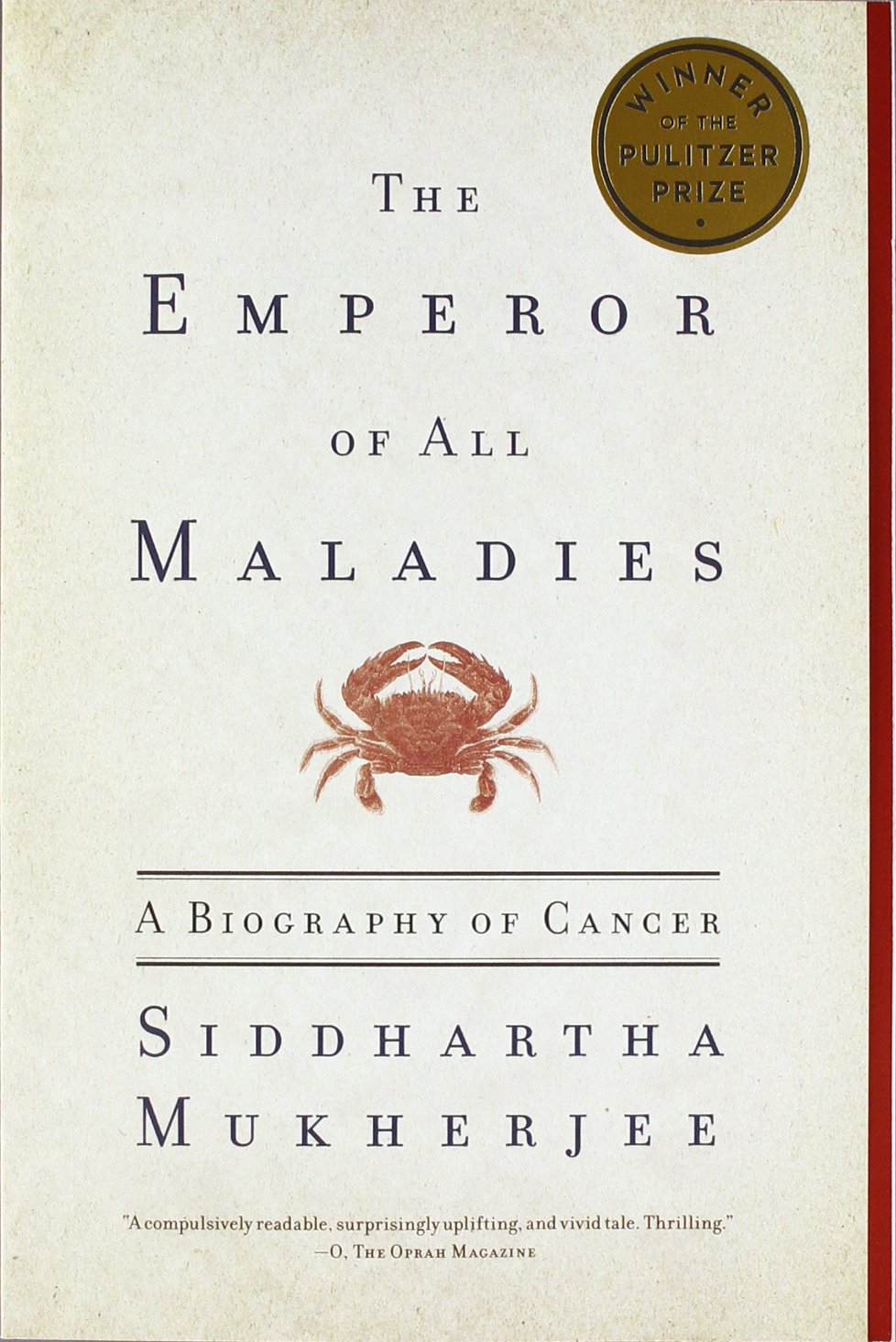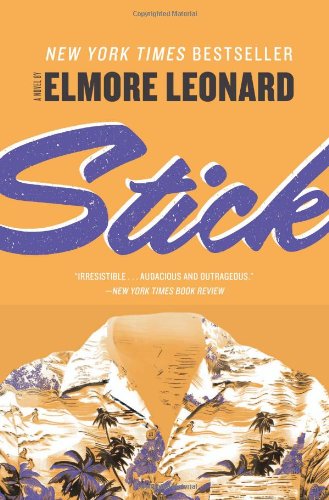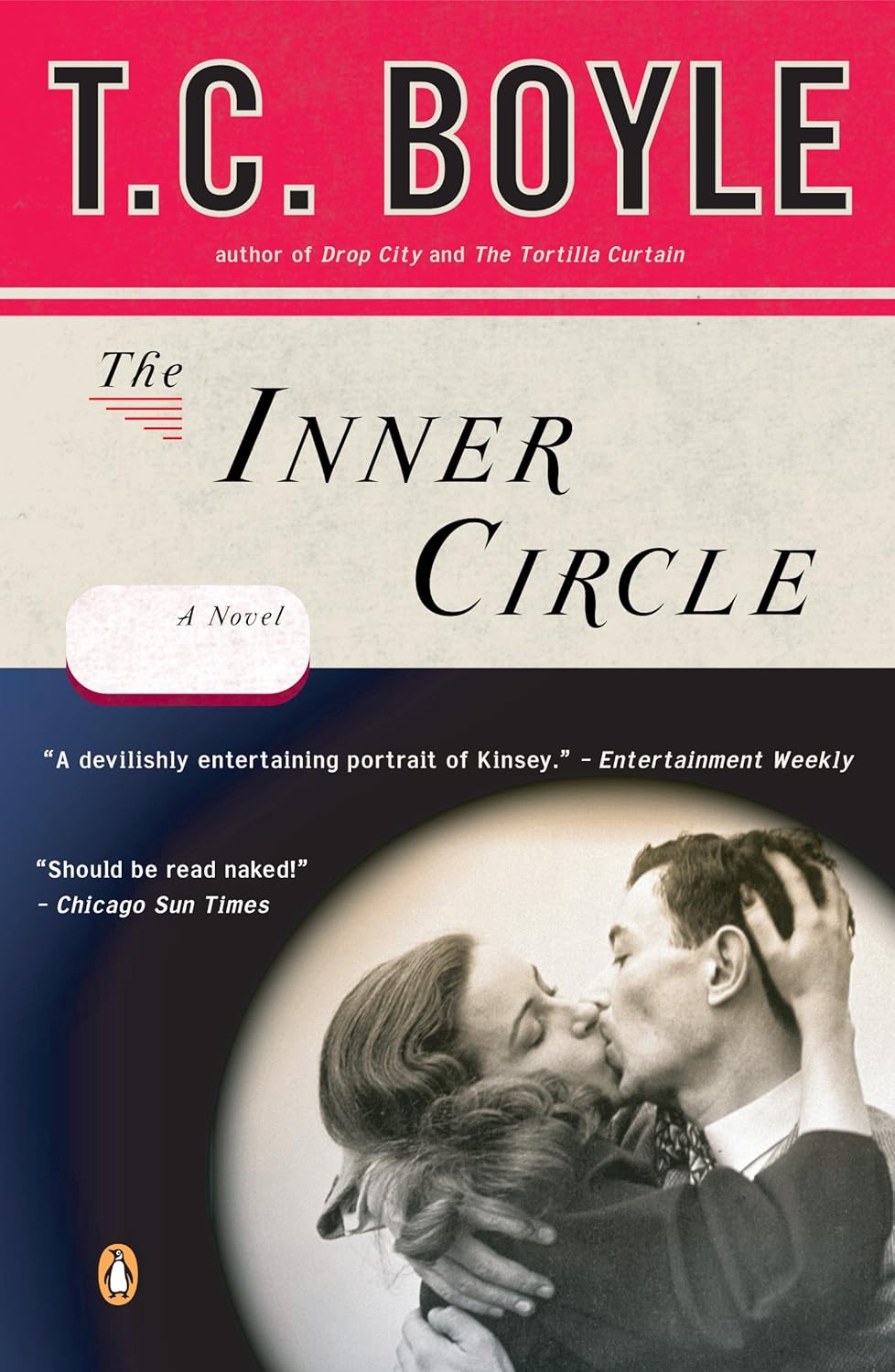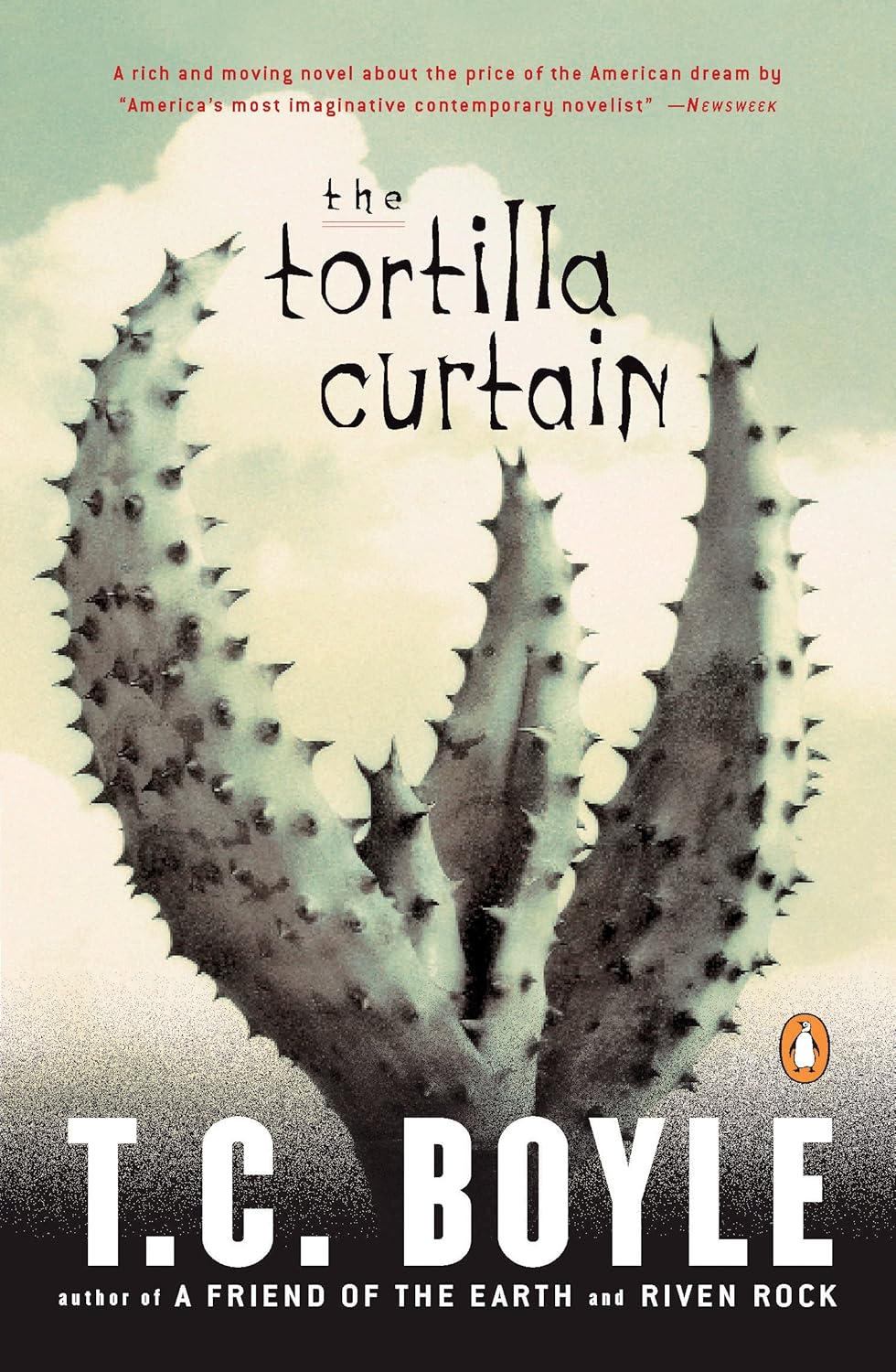Working my way slowly through a real tome: Emperor of all Maladies. Kindle edition.
Nothing dry, arcane, or mind numbingly dense about this one. Exceptionally well written and engaging; the story of key events and personalities in the so-called war on cancer makes this feel like fiction, though it isn’t, and I’m only ~15% of the way through. For all the laughable notions that people evidently have had about cancer, going as far back as antiquity, I remain humble that even though we moderns know a great deal more about this disease (in reality many diseases, most now agree), certainly at the molecular level if not also in terms of treatment and extending survival, we still haven’t cured this beast. Well worth your money and time if this stuff interests you.
What else have I read in ’13? Let’s take a ride on the kindle carousel (images linked to Amazon entry).
Seems like a real hodgepodge. In order of most recent:
Stick by Elmore Leonard
Crime fiction. Not a genre that has ever interested me, but reading around the last few years Leonard’s name comes up again and again as someone who got storytelling right. Regrettably, he died last year, but he left behind one hell of an impressive oeuvre, and quite a few of his books have been made into movies, e.g. Get Shorty, which I really enjoyed. He certainly had a good ear for dialog and knew how to pace a story well, based on my read of Stick anyway. Probably won’t read another one of his books but glad I got to know him. If you’re into crime fiction I imagine Leonard is hard to beat.
The Deserters: A Hidden History of World War II by Charles Glass
Heard about this one on NPR. Told through the perspective of three deserters, two American soldiers, one British. Supposedly, as many as 150,000 American and British soldiers deserted in WWII. Glass tells us that some of them went into crime after they deserted, especially in France, but elsewhere in Europe too. Punishment for desertion was pretty harsh, including death, though if I recall correctly only one deserter in all of WWII was executed. A bit discursive here and there, and like several reviewers at Amazon commented, I wanted to hear more about deserters in general and less about the details of just three of them, but overall a very well researched book I thought. A challenging subject for sure.
Odds Against Tomorrow by Nathaniel Rich
Another NPR recommendation. Didn’t really care for this one. The prose was intermittently good — I wasn’t as agog over it as many at Amazon were — although the characters I thought strained credulity. The main character is a math whiz who becomes a Quant for a company that predicts calamitous future events and sells the predictions to other companies who can then take appropriate action, like relocating offices out of New York in advance of a Cat 3 hurricane hitting Manhattan, which happens in this book. After this, the book turns into a post apocalyptic novel with our math whiz and some hottie he befriends paddling through the flooded streets of Manhattan in a canoe. Periodically, he reflects on his obsession with another girl he’d met in college who now lives in Maine (?) and has a life-threatening heart condition. I think the intention here was to show us our math whiz isn’t merely a walking computer but had a human side to him as well, but to me this seemed contrived. Eventually he leaves the hottie and becomes a kind of survivalist, making his home in an abandoned building outside Manhattan, living off the grid. (No wonder as most of the grid was still out due to the hurricane). Anyhoo, I agree with many who said the book was overall depressing, interspersed here and there with novel observations and comical events, but that didn’t disappoint me so much as did finishing the book and thinking, “So what?”
Brain on Fire by Susannah Cahalan
Autobiographical retelling of terror. Decent read especially the first half of the book. Second half meandered a bit. The author, who worked as a journalist for a newspaper, is stricken with a neurological autoimmune disease with increasingly terrifying symptoms — brain inflammation, seizures, severe paranoia, insanity. It gets so bad she is unrecognizable by her friends or even herself. Disease goes undiagnosed for at least a month until a hotshot neurologist eventually figures it out. Chilling tale of desperation and perseverance when the best medical minds are stumped. 4/5 stars.
The Man Who Mistook His Wife for a Hat by Oliver Sacks
Must have been in my neurological phase. Another book about neurological disorders told from the perspective of a practicing neurologist, who also happens to be a pretty decent writer. This is a relatively old book I’ve been meaning to read for years. The title derives from a rare and bizarre disorder that renders its victims with the inability to recognize faces (Google prospagnosia), but worse, to mistake certain random objects like a hat for someone they know, like a spouse. Crazy, right? The book is chocked full of accounts of patients treated by Sacks who had weird disorders like these, how they were diagnosed, what the patients and their loved ones go through, and remarkably how some who are afflicted with these disorders are otherwise able to lead very productive lives. Music as therapy is discussed, which I found fascinating. Five stars.
Sphere by Michael Crichton
I’ve been thinking about the plot of a novel I might write someday and came across this book in my search for others that might have had similar plot elements. Again, not a genre I’m normally interested reading (or writing should I ever get there), I read it as research. Decent read, fairly good story telling and ably plotted; prose style was not my cup o’ tea but if you like stories about teams of quirky scientists dispatched to the deep ocean floor to explain what turns out to be a spaceship that had crashed, this one’s for you. Not nearly as good as I remember Jurassic Park being, which I devoured when it was first published. Used to read a lot of science fiction when I was younger, not anymore.
Inner Circle by T.C. Boyle (Paperback).
My favorite author. Period. Fictional account of the life and times of sex researcher, Alfred Kinsey. Dark at times, funny at times, always a constant page turner. Only disappointment was that it took me so long to get to this one (and the next one). Including his short story collections, which are fabulous and a perfect way to get your feet wet with this author should you be interested, I’ve read nearly everyone of Boyle’s books, like what, over twenty five by now?
Tortilla Curtain by T.C. Boyle (Paperback).
Ibid. A modestly affluent California man (Delaney) is driving home to his house in a gated community of Topagna Canyon (?) when he hits and injures an illegal Mexican immigrant (Candido). Delaney stops and gets out of his car, panics not knowing what to do. Candido gets up, their eyes meet briefly, and Candido begins to limp away. Evidently desperate to do something, Delaney starts after him and gives $20 to Candido, who then continues to limp away down a steep canyon trail. Their lives take off in very different directions, but through force of circumstances intersect again at the end of the book. An antipodal telling of the American Dream. I don’t think the story was the least bit cliche as some reviewers thought, and if it is, if this is truly representative of the reality for many illegal Mexican immigrants, man…
These books plus gobs of short stories from anthologies and literary journals (too many to list), essays here and there, and of course, like you, whatever catches my eye day-to-day on the internets.







